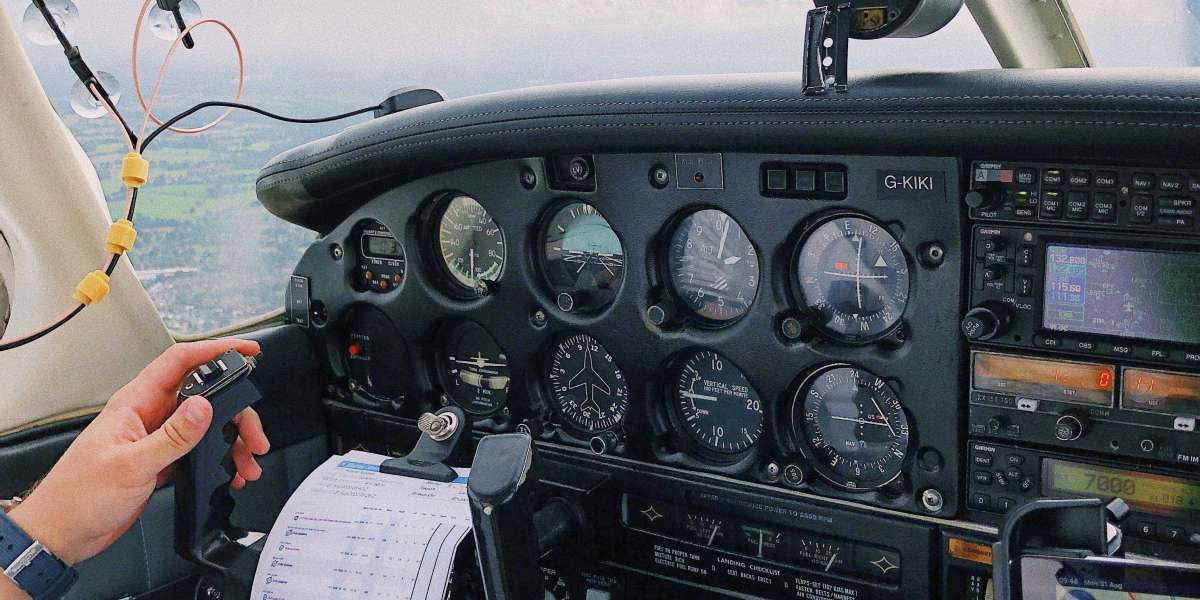In the world of aviation, English is not just another language. It is the official global language of aviation. Whether you're a student pilot, a commercial pilot, or an air traffic controller, English communication plays a big role in your success and safety.
Many students focus only on flying skills and technical knowledge. But communication, especially in English, is just as important. Let’s understand why good English communication skills are a must in aviation and how they help in real-life situations.
Why English Matters in Aviation
English is used as the universal language in aviation. The International Civil Aviation Organization (ICAO) made it the official language for all international flights. This means that pilots and air traffic controllers around the world must communicate in English—no matter which country they are from.
Here’s why it is so important:
1. For Clear Communication
Pilots need to talk to air traffic control (ATC) to get instructions about takeoff, landing, altitude, and flight paths. If there is any misunderstanding, it can lead to serious safety issues. Clear English helps avoid confusion and makes flying safer.
2. For Understanding Aviation Terms
Many aviation words and phrases are in English. From cockpit controls to manuals and weather reports—everything is written or spoken in English. Pilots must understand these terms to fly safely and confidently.
3. For Emergency Situations
In case of an emergency, quick and clear communication can save lives. In such moments, every second counts. Being fluent in English helps pilots explain the situation properly and get help faster.
ICAO English Language Requirements
ICAO has a rule that all pilots flying internationally must reach a minimum Level 4 in English language skills. These skills include:
Pronunciation
Grammar
Vocabulary
Fluency
Comprehension
Interactions
Pilots are tested on how well they can speak and understand English in aviation settings. This is not just about general English, but also aviation-specific communication.
Real-Life Example
Let’s say a pilot from India is flying to Germany. The air traffic controllers in Germany will give instructions in English. If the pilot doesn’t understand clearly or answers in broken English, there could be a serious mistake.
That’s why flight schools like us focus on developing strong communication skills along with flight training.
How Communication Affects a Pilot's Career
1. Clearing Exams and Interviews
To become a commercial pilot, students must pass DGCA exams, which include English communication. Airlines also check a candidate’s spoken and written English during interviews.
2. Flying International Routes
Pilots with strong English communication skills get better chances to fly on international routes. These routes offer higher salaries and more career growth.
3. Teamwork in the Cockpit
Pilots need to talk to their co-pilot, cabin crew, and ground staff. A small misunderstanding can lead to errors. Good English helps in clear teamwork and coordination.
How to Improve Your English for Aviation
If you're training at a top school like us you'll get proper support to improve your English. But here are some tips you can follow on your own too:
1. Listen to Aviation Podcasts
Listening to aviation podcasts (like “Pilot to Pilot” or “The Finer Points”) helps improve vocabulary and pronunciation. You also learn real-world aviation phrases.
2. Watch English Aviation Videos
YouTube has many videos where pilots talk about their journey, cockpit experience, and more. This helps in learning how pilots use English in everyday flying.
3. Practice Speaking Daily
The best way to learn English is by speaking it regularly. Talk to friends, trainers, or family members in English. The more you speak, the more confident you’ll become.
4. Take Aviation English Courses
Many flight schools and online platforms offer special aviation English training. These courses focus on radio calls, pilot phrases, and aviation vocabulary.
How PilotsPathway Helps Improve Communication
At PilotsPathway, we know that English is the backbone of safe flying. That’s why we include aviation English communication classes as part of our training program. Our expert trainers guide students in improving their pronunciation, fluency, and understanding of ATC phrases.
We also conduct mock ATC conversations and cockpit roleplays so that our students can become confident communicators in real-life flying conditions.
This is one of the many reasons why we are known as the Best pilot training institute in Jaipur.
Common Aviation Phrases You Should Know
Here are some basic phrases every pilot must understand and use properly:
“Cleared for takeoff” – Permission to take off.
“Maintain altitude” – Stay at your current height.
“Descend and maintain 5,000 feet” – Go down to 5,000 feet and stay there.
“Squawk 7000” – Set your transponder to code 7000.
“Request flight following” – Ask ATC for help in tracking your flight.
These may look simple, but saying or hearing them wrong can be dangerous. That’s why clear English is so important.
Conclusion
If you’re serious about becoming a pilot, don’t ignore the importance of English communication. It is not just about passing exams—it’s about flying safely, confidently, and professionally.
Strong communication helps you:
Understand flight instructions
Handle emergencies
Clear exams and interviews
Work better in a team
Grow your career globally
At a reputed academy like the Best pilot training institute in Jaipur, improving English is part of your pilot training journey.
So start listening, reading, and speaking English daily. And if you need expert support, We are here to help you every step of the way. Let’s make your dream to fly take off—with the right words and right training.




